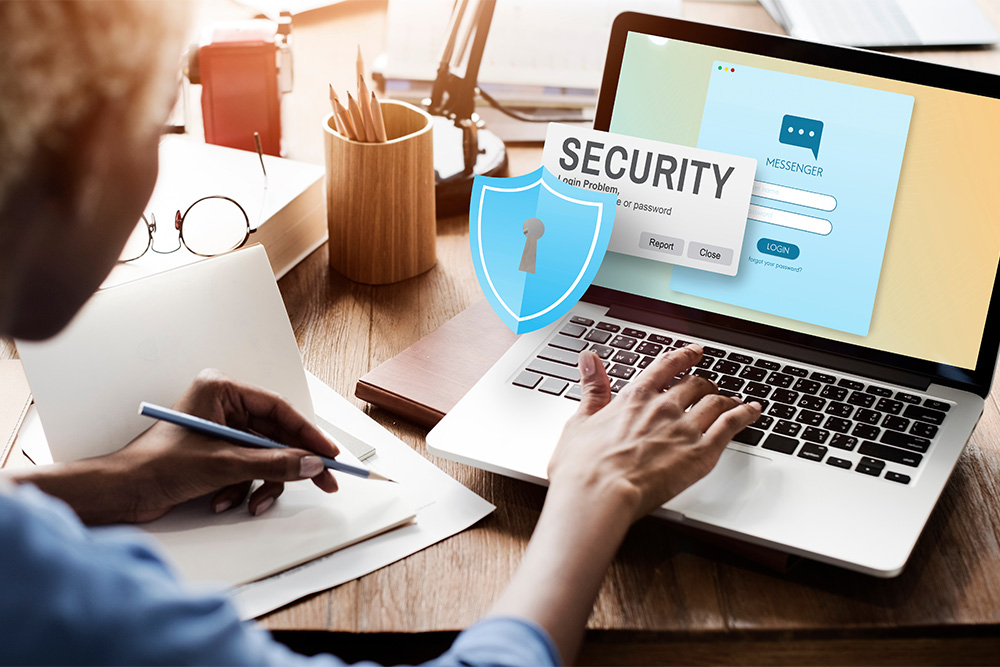DCCU Routing # 251483311
Did you know that each holiday season, nearly one in four Americans become victims of some form of fraud, according to Experian? The two most common holiday scams are non-delivery and non-payment fraud. In a non-delivery scam, items are bought and paid for online, but the items never arrive. A non-payment scam, on the other hand, involves the shipping of goods or services to a consumer, but the seller never receives payment. Protecting yourself against these and other forms of fraud are important, and today we’ll be offering you four ways to safeguard yourself.
Prioritize your online safety
Practicing smart online behavior is one way you can safeguard yourself against holiday scams. Never click on suspicious links or attachments in text messages, emails, on websites, or even on social media. You should also consider setting strong passwords that are long, creative, difficult to guess, and free from personally identifiable information. Another way to protect yourself is to be familiar with the warning signs of a scam, which sometimes include a pressure from the scammer to act immediately or a request to pay in a specific way.
Be aware of who you are buying from or selling to
Another way to protect yourself from falling prey to holiday scams is by knowing the identity of who you are buying from or selling to. If you are purchasing an item from an online retailer, be sure there is an ‘https’ in the web address, which makes it more secure. If the retailer doesn’t have this, do not enter your financial information into the site. When purchasing from a retailer online for the first time, it may be beneficial to do a little research in order to verify they are a reputable business. Finally, be sure to avoid any buyers who require shipping via a specific method in order to avoid customs or taxes from another country.
Be mindful of how you pay
If you are completing your shopping online this holiday season, it’s important to remain mindful of which methods you use to pay. If you would like to utilize your bank account or debit card to shop online, consider enabling a digital wallet for added security. It’s also important to check your account statements for fraud regularly. Be cautious if you are asked to pay for items with a prepaid gift card. Often in these sorts of scams, a seller will request you send them the gift card number and PIN as payment for the items you have been promised. Rather than using these funds for the purchase, however, the scammer steals them and you are left without an item.
Monitor the shipping process
When purchasing items online, it’s always a good idea to request a tracking number. This way, you’ll have verification that the items have shipped and can track their progress throughout transit. This small gesture of providing a tracking number offers the buyer peace of mind and confidence that their package will be delivered as promised. If no tracking number is provided automatically by the seller, this is a red flag, and you should proceed with caution. Monitoring the shipping progress of your purchases is just one of many ways you can protect yourself from scams.
With the holiday season quickly approaching, it is very important to remain vigilant in protecting yourself and your wallet from fraudulent activity. Remember to prioritize your online safety and always be aware of who you are buying items from. Avoid sending the prepaid gift card number and PIN to pay for a purchase, and always request a tracking number. Enabling fraud alerts on your credit or debit cards is also a good idea as you will be notified immediately if any suspicious or fraudulent activity is detected. DCCU Security Alerts can be enabled from within Online or Mobile Banking. And remember to listen to your instincts—if something appears to be too good to be true, it likely is. Please visit our Fraud Prevention & Alerts page for more information.
This article is for general information only and not intended to provide specific advice or recommendations for any individual.
Related Articles

Four Ways to Safeguard Your Online Privacy



